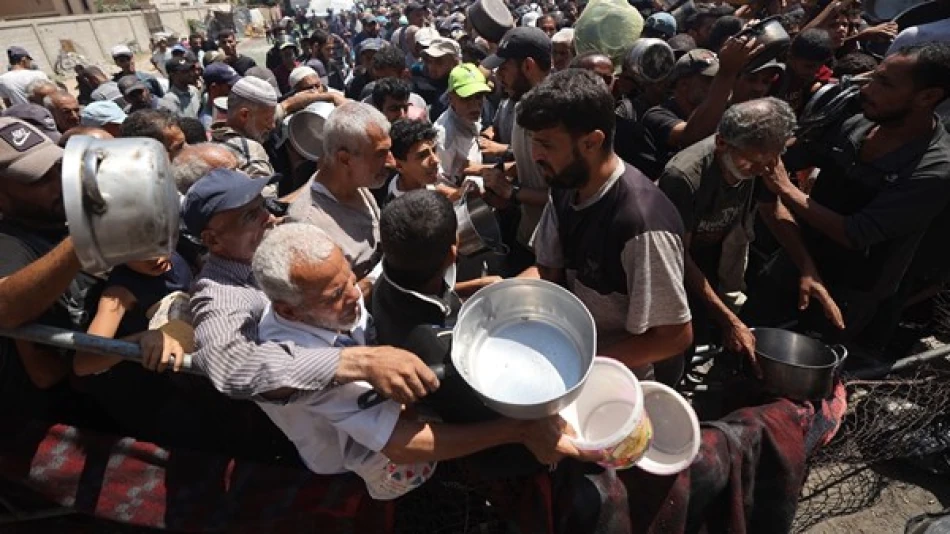
UN Chief Warns of Imminent Crisis in Gaza Strip, Urges Action to Avert Catastrophe
UN Chief Warns Gaza's "Last Lifeline" is Collapsing as Humanitarian Crisis Deepens
UN Secretary-General António Guterres issued a stark warning Monday about Gaza's deteriorating humanitarian situation, describing the collapse of what he called "the last lifeline keeping people alive" as reports of malnutrition surge across the besieged territory. The statement marks one of the UN's most urgent appeals yet as international aid organizations struggle to deliver basic necessities amid ongoing violence.
Malnutrition Reports Signal Deepening Crisis
UN spokesperson Stéphane Dujarric conveyed Guterres' growing alarm over "increasing reports of children and adults suffering from malnutrition" throughout Gaza. The warning comes as humanitarian corridors face unprecedented challenges, with aid workers reporting severe restrictions on food, medical supplies, and clean water reaching the territory's 2.3 million residents.
The malnutrition crisis represents a critical escalation in Gaza's humanitarian emergency, with children particularly vulnerable to long-term health consequences. Historical precedents from other conflict zones suggest that once malnutrition becomes widespread, recovery can take years even after hostilities cease.
Israel Pressed to Facilitate Aid Operations
The UN chief called on Israel to fulfill its obligations under international law by "allowing and facilitating humanitarian relief provided by the United Nations and other humanitarian organizations through all available means." This appeal reflects mounting international pressure on Israel to ensure aid access, echoing similar demands from the International Court of Justice and multiple UN Security Council resolutions.
The statement carries particular weight given Israel's role as the controlling power over Gaza's borders, airspace, and territorial waters. Under the Fourth Geneva Convention, occupying powers bear responsibility for ensuring the welfare of civilian populations under their control.
Violence Against Civilians Seeking Food Condemned
Dujarric emphasized Guterres' "strong condemnation of ongoing violence, including the shooting, killing, and injuring of people attempting to obtain food for their families." These incidents highlight the dangerous conditions civilians face even when trying to access basic necessities, creating what aid experts describe as a "survival penalty" for Gaza's population.
The targeting of civilians seeking food represents a violation of international humanitarian law, which requires parties to conflict to distinguish between combatants and non-combatants. Such incidents have historically drawn intervention from international bodies and can influence post-conflict accountability proceedings.
International Implications and Precedents
The UN's increasingly urgent tone mirrors patterns seen in other humanitarian crises where early warnings preceded larger-scale disasters. The organization's emphasis on malnutrition specifically recalls its responses to crises in Yemen, South Sudan, and Syria, where similar warnings preceded formal famine declarations.
For the international community, Gaza's deteriorating situation presents a test case for the effectiveness of multilateral humanitarian intervention. The crisis occurs as global food insecurity reaches record levels, stretching international aid resources and highlighting the vulnerability of civilian populations in conflict zones worldwide.
Most Viewed News

 Layla Al Mansoori
Layla Al Mansoori






